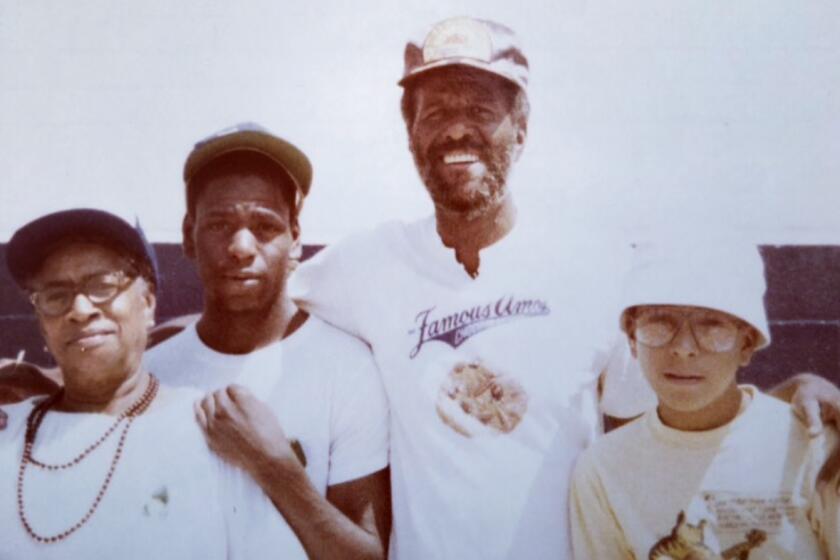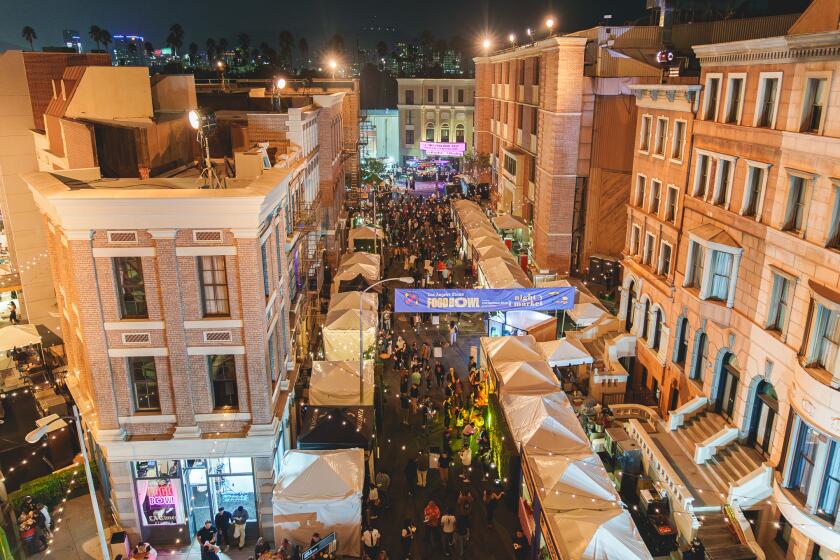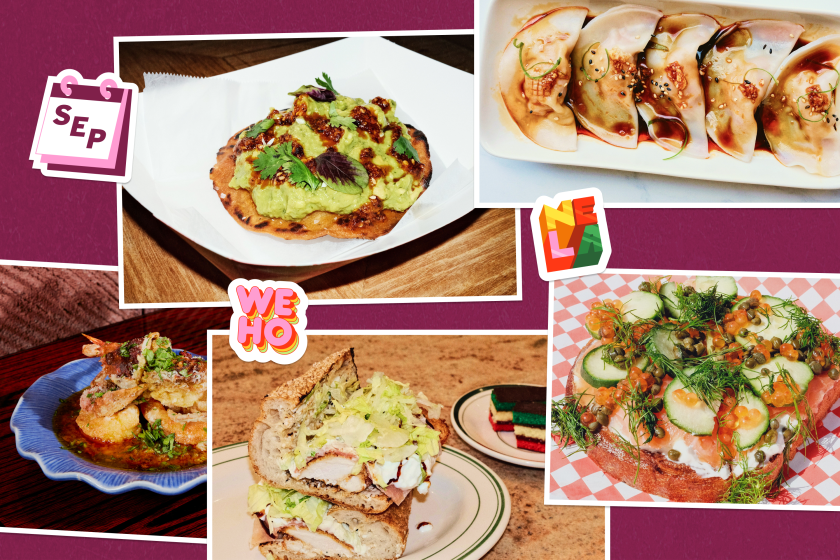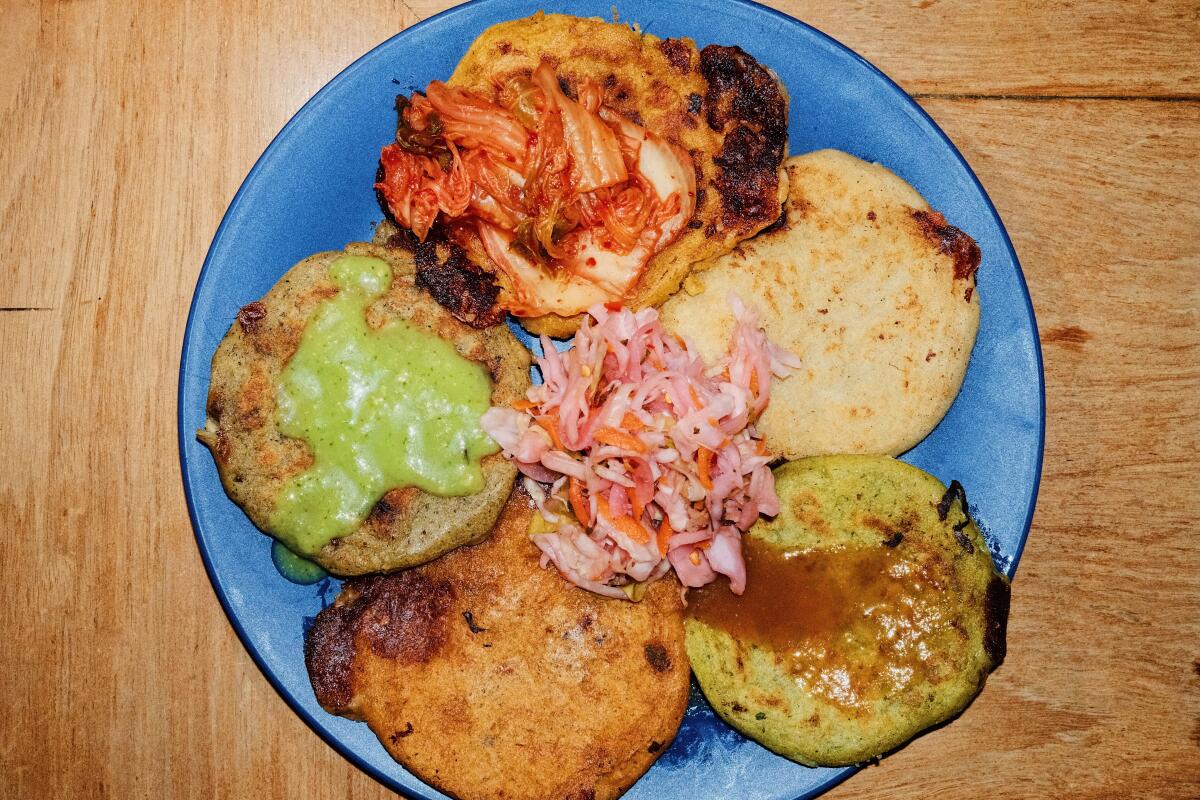
12 must-try dishes that celebrate L.A.’s vibrant Salvadoran food scene
Newlywed chefs Rene and Stephanie Coreas launched Walking Spanish in 2020, after losing their jobs at Bon Temps, the Arts District restaurant where they met. The closure left them on unsure footing, but despair quickly gave way to a new ambition: elevating Salvadoran flavors through a chef-driven pop-up. Now a permanent pop-up on the patio of the West Hollywood mezcal bar Las Perlas, Walking Spanish reimagines pupusas in a way that makes you feel as if you’re having them for the first time.
“There’s no limit to the pupusas we can create,” said Rene. “We think outside the box and cook from the heart. I get the sense that there is a movement happening, especially in Los Angeles,” he added. “We are rewriting the narratives of our own community.”
In Los Angeles, pupusas are often the go-to Salvadoran food; they’re affordable, easy to transport and widely available across restaurants, farmers markets and street stalls. But the cuisine of El Salvador, affectionately known as “El Pulgarcito de América” (or the “little thumb” of America, a playful dig at its status as the smallest country in Central America), has much more to offer.
Especially in light of the current “Salvi Renaissance,” a term coined by popular Salvadoran comedian Hoozay, which he uses to describe the resurgence of Salvadoran culture in L.A., particularly in the comedy and food scenes. “Growing up Salvadoran in Los Angeles, I never felt represented. Being a part of this movement is important to me because it means my kids get to grow up with this kind of representation as the norm. We are laying the groundwork for generations to come,” he said.
The sentiment is echoed by former Osteria Mozza chef Jimmy Reyes, owner and operator of Boyle Heights’ newest dining sensation Leña, who’s taking a fiery approach to Salvadoran cuisine. “Cooking over wood-fire is something that takes me back to enjoying cookouts with my family in El Salvador,” he said.
Owning a restaurant has been Reyes’ lifelong dream, but he credits his aunt, Candida De La Luz, as one of his biggest motivations for opening his own place. “I’ve been watching and helping my tía in the kitchen since I was a kid,” said Reyes. “Owning a restaurant has always been her dream, but she never pursued it because, like many other immigrants, her focus was always on working to help her family. And now with growing support for Salvadoran food and culture, I’m proud to be by her side again watching her achieve her goals.”
From saucy pan con pollo in Huntington Park to protein-packed pastelitos in Pico-Union, here are 12 dishes that showcase the depth of Salvadoran cooking and the best places to try them across L.A.
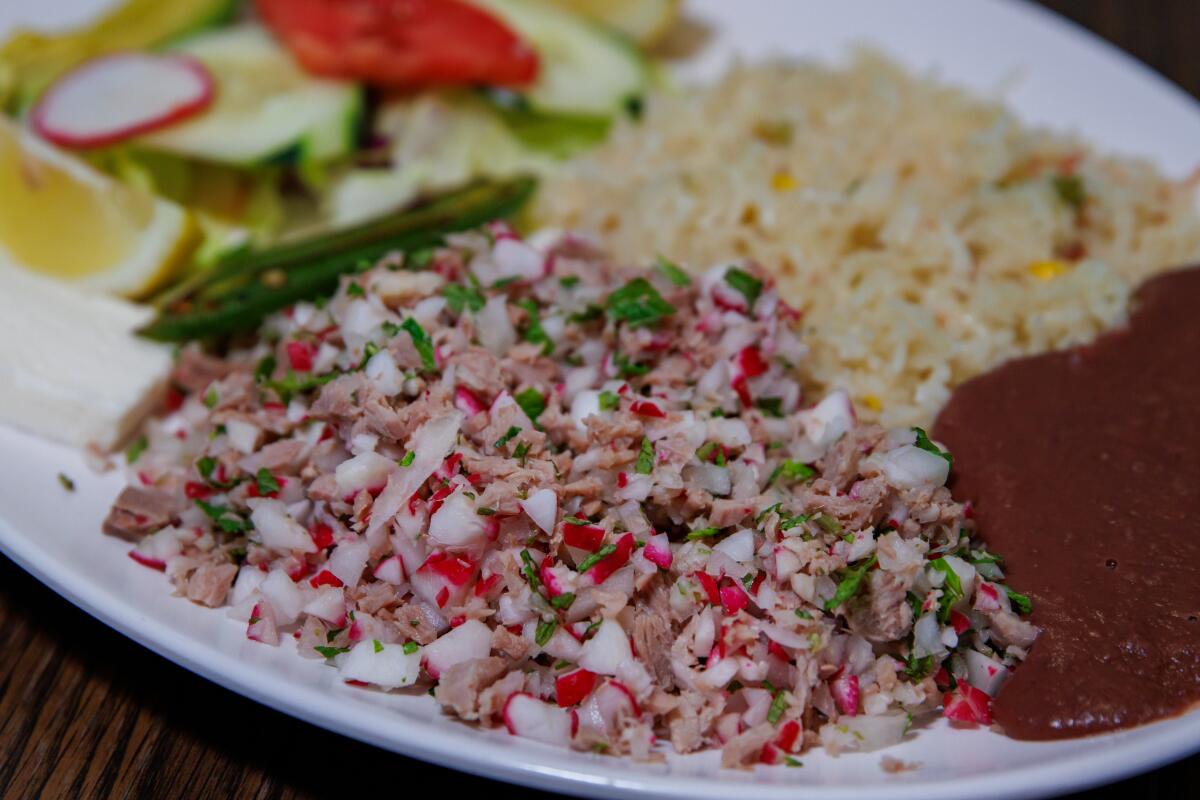
Salpicón from El Majahual Pupuseria
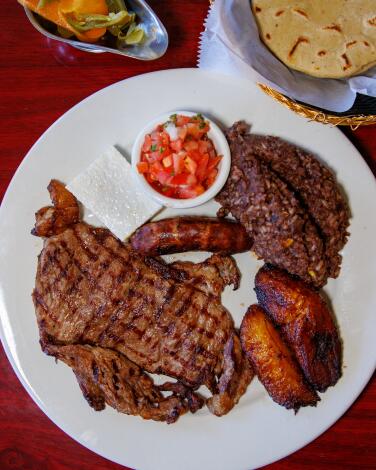
Churrasco Típico from Jaragua Restaurant
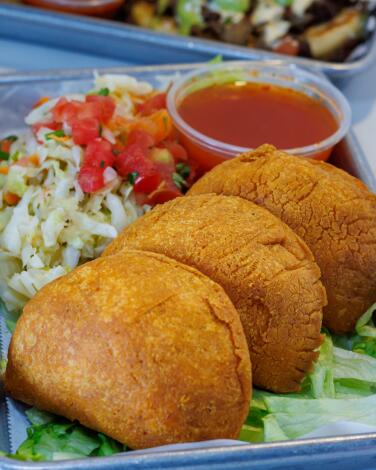
Pastelitos from La Pupusa Urban Eatery
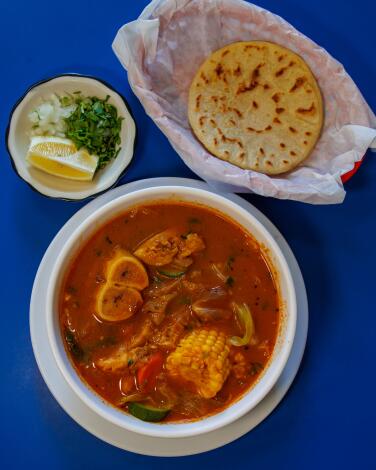
Sopa de pata from La Flor Blanca Salvadorena
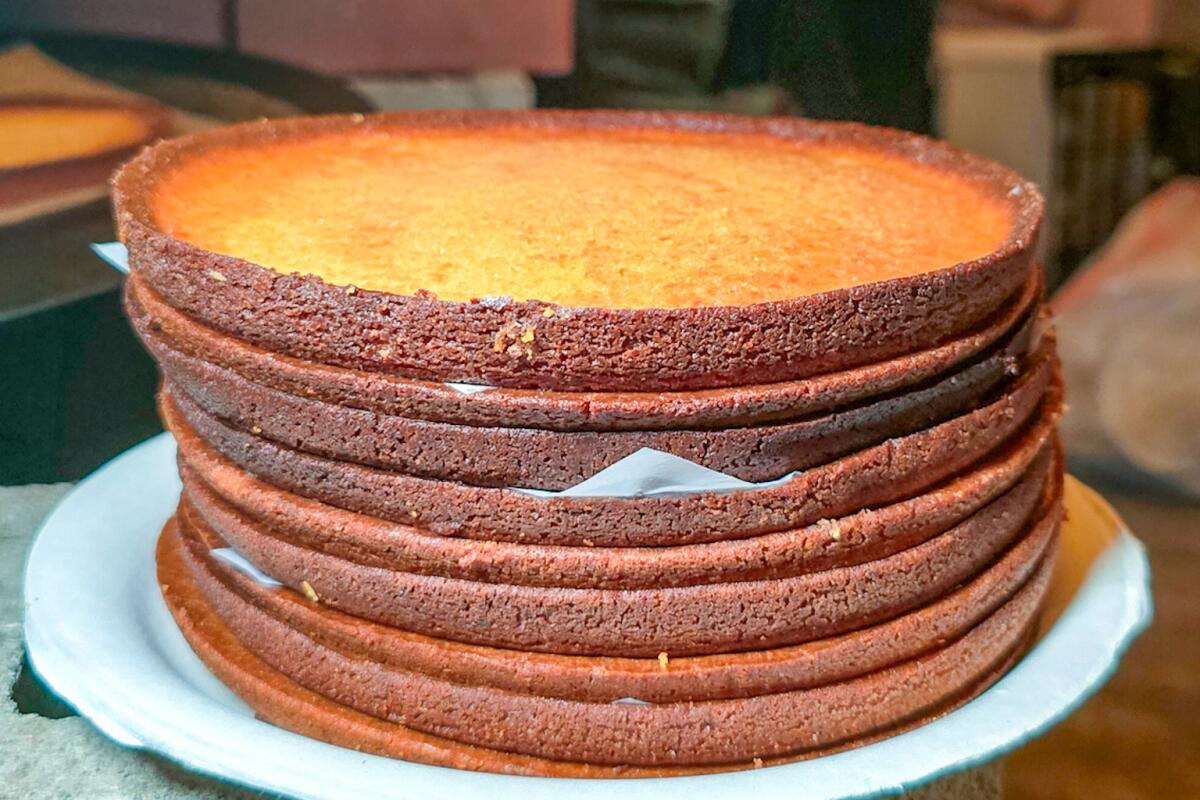
Salvadoran quesadillas from Leña
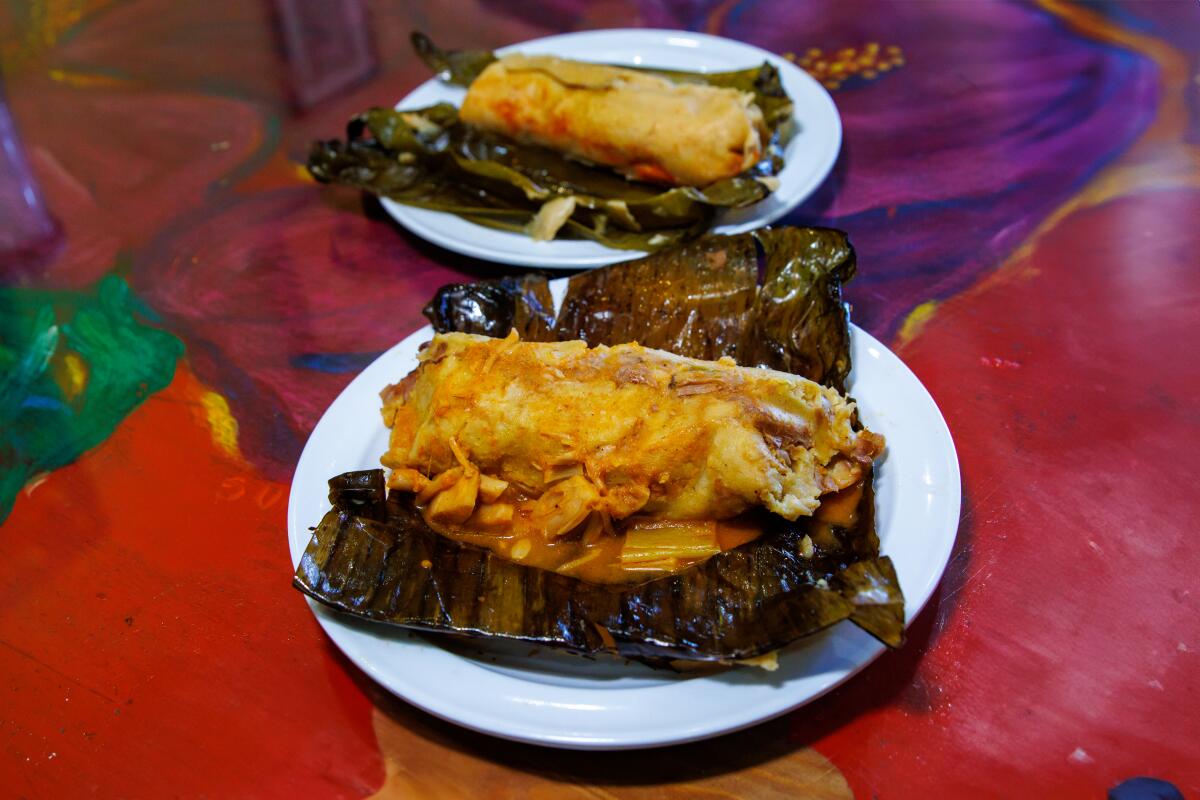
Salvadoran tamales from Mama’s International Tamales
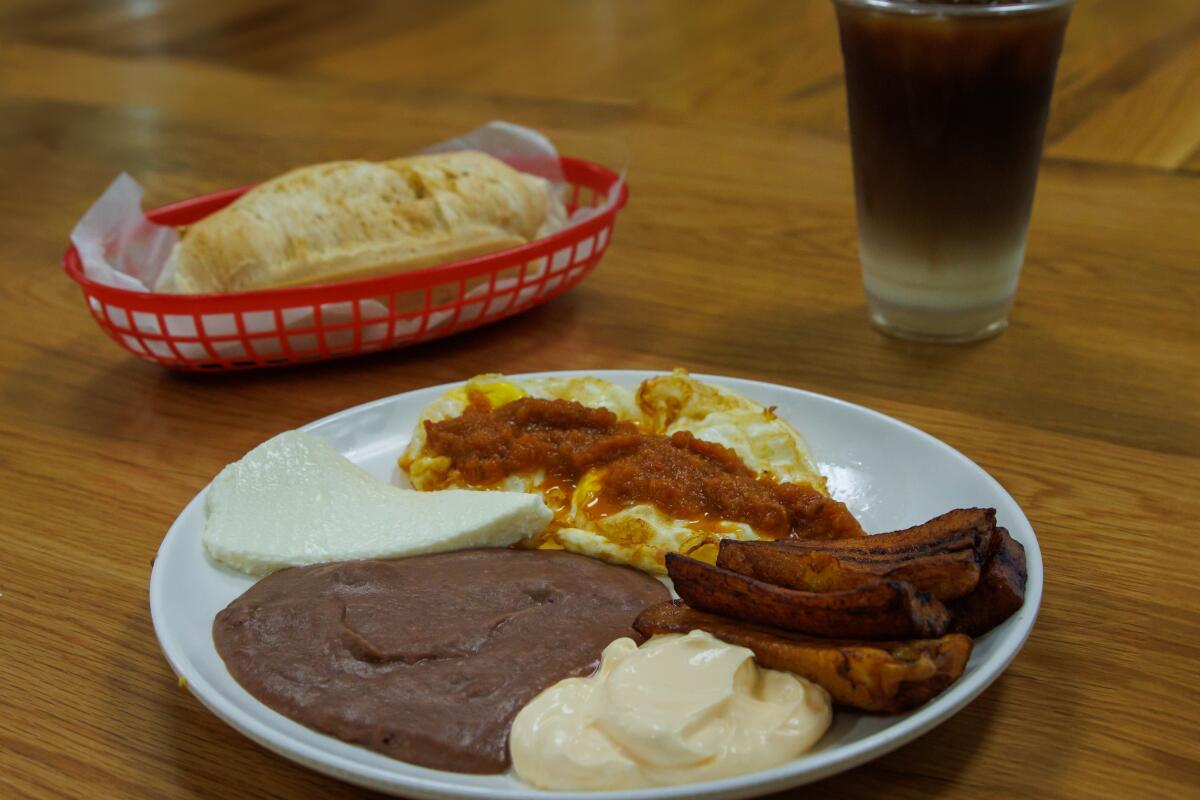
Desayuno típico from Panaderia Cuscatleca
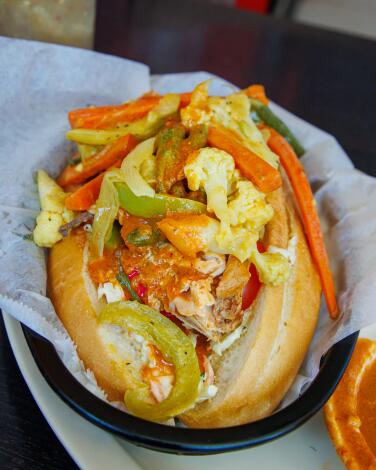
Pan con pollo from Pupusas Eli
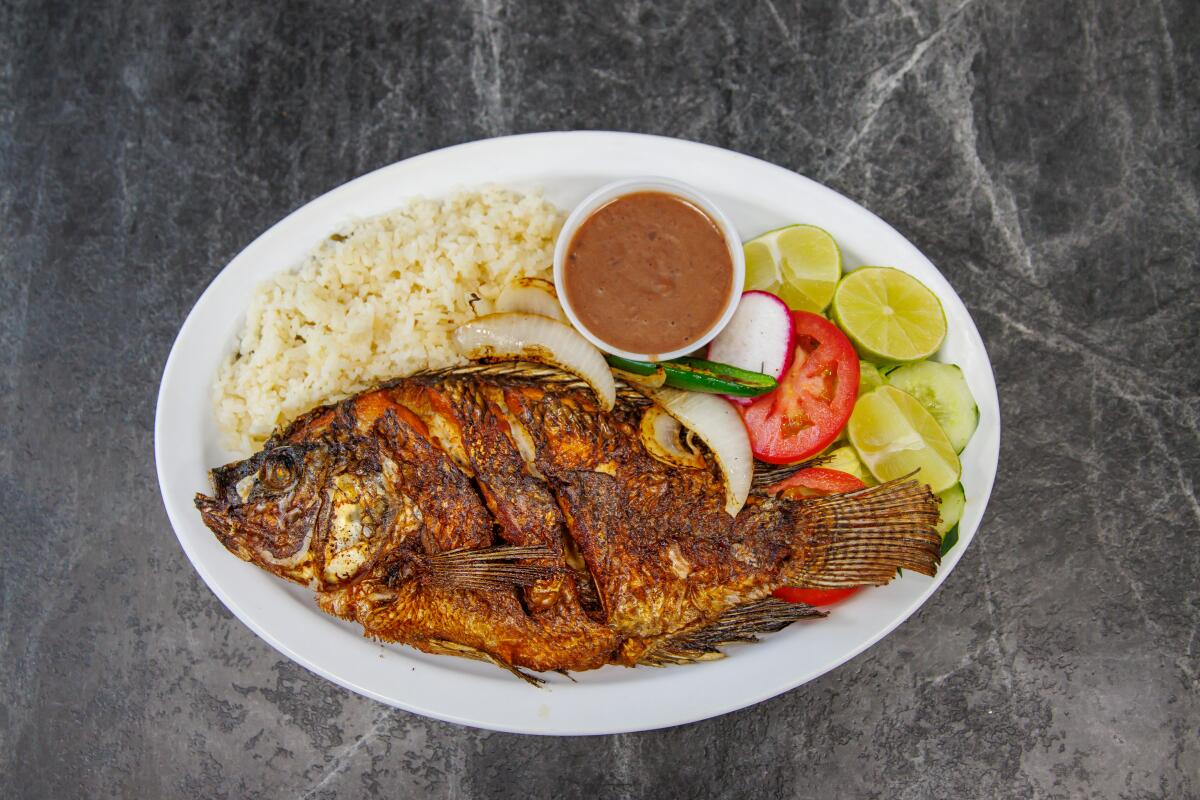
Mojarra frita from Rio Lempa Restaurant
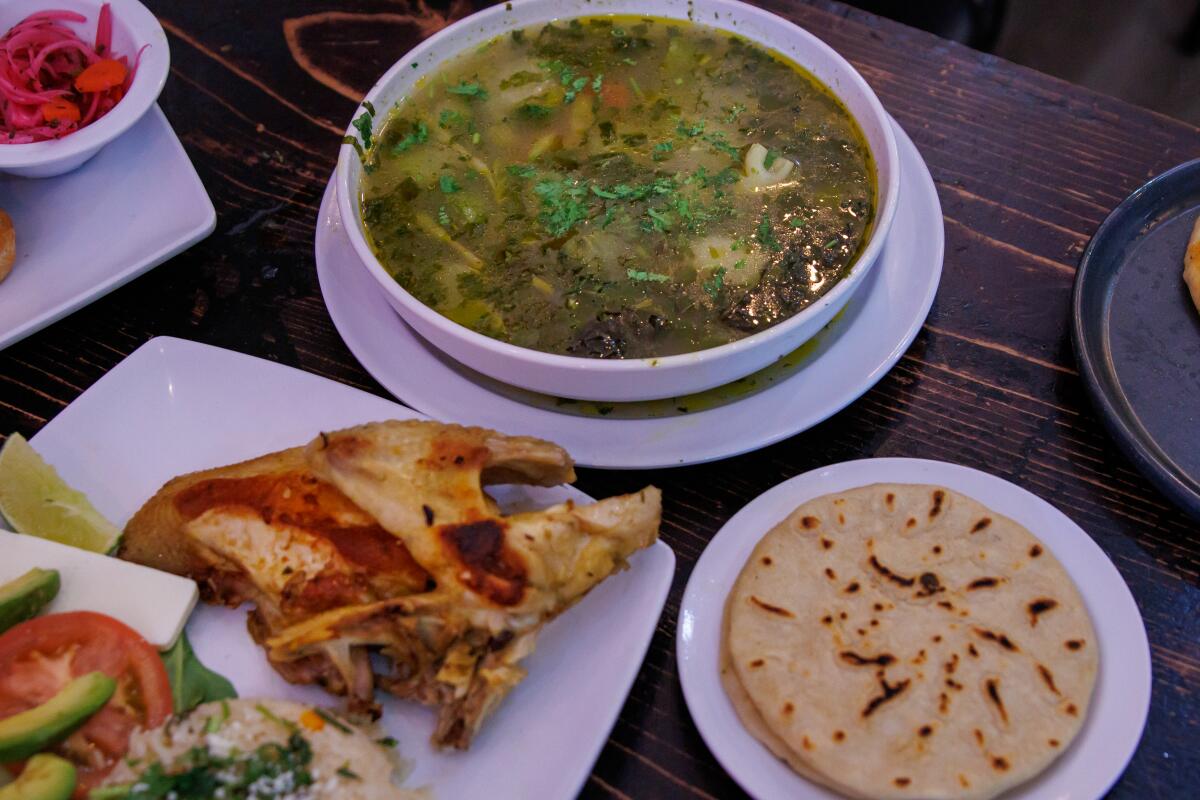
Sopa de gallina from Sivar Treats
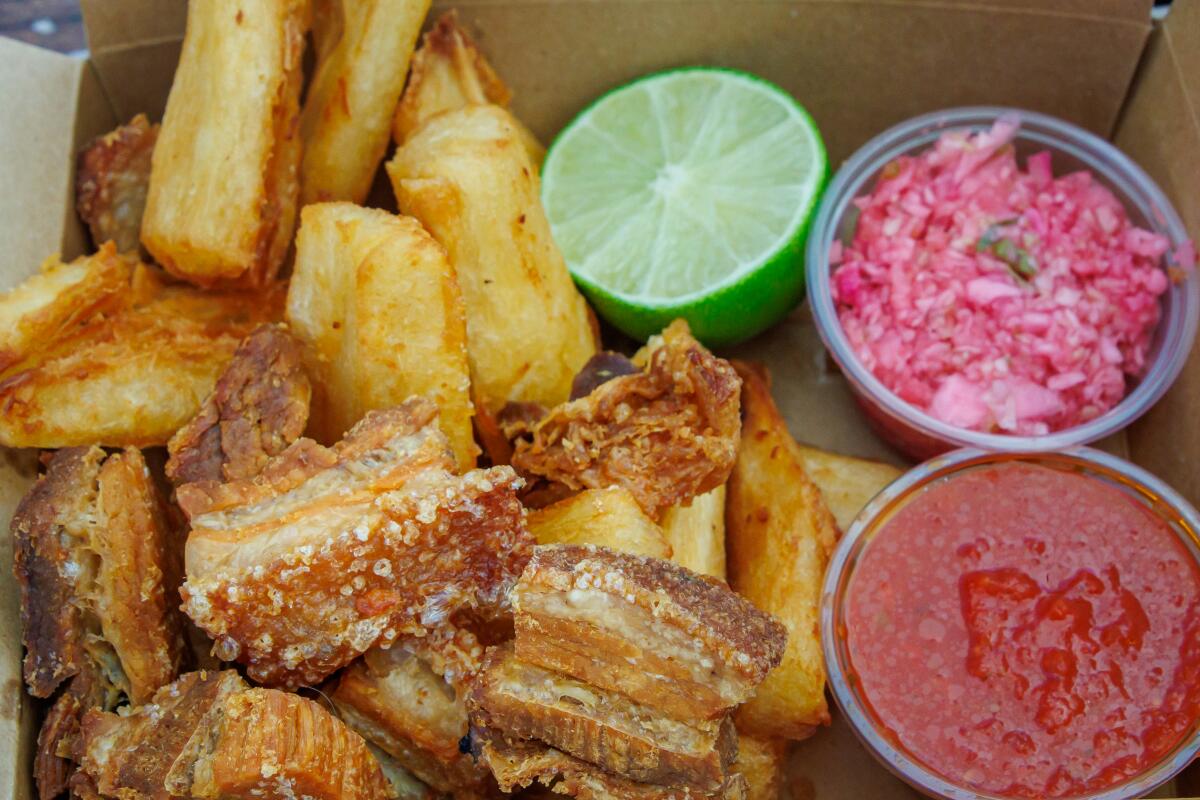
Yuca con chicharron from VChos Pupuseria Moderna
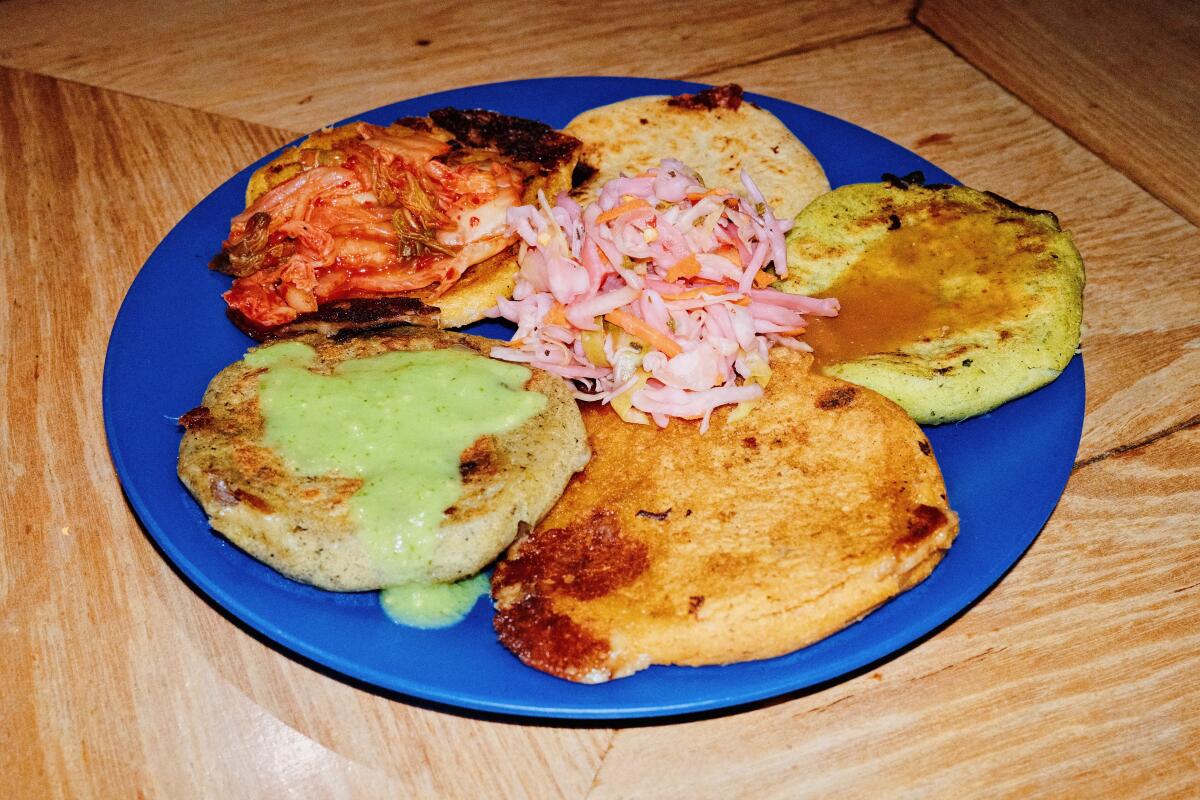
Mini pupusa flight from Walking Spanish
Eat your way across L.A.
Get our weekly Tasting Notes newsletter for reviews, news and more.
You may occasionally receive promotional content from the Los Angeles Times.

